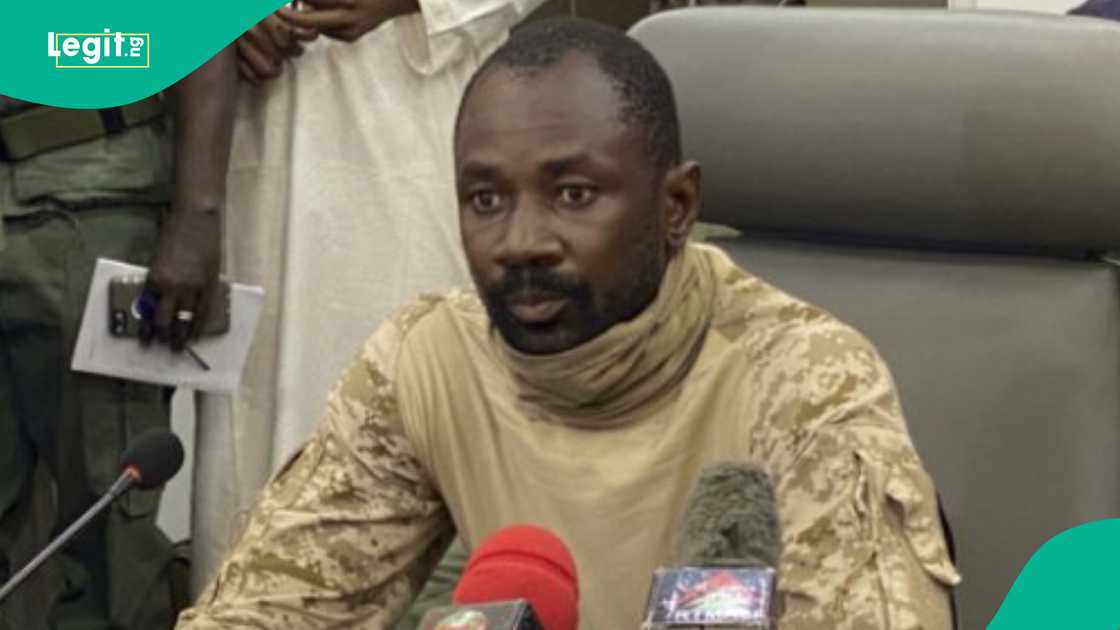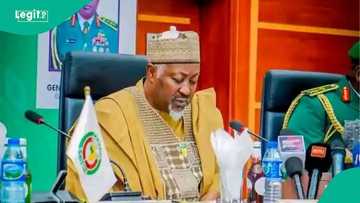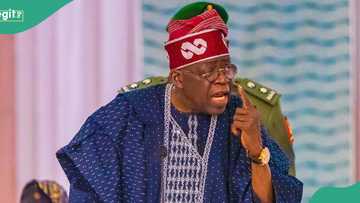Mali's Military Government Shuts Down All Political Parties
- Mali's military junta has officially dissolved all political parties, a move that follows a national conference recommending Assimi Goita as president for a five-year term
- The decision has sparked protests in Bamako, with demonstrators demanding multi-party elections and denouncing dictatorship
- Meanwhile, reports of opposition figures disappearing have raised concerns over political freedom and human rights in the country
Mali’s military junta has dissolved all political parties in the country.
A statement read on state television on May 13 said the country’s military leader, Assimi Goita, validated the decision.

Source: Getty Images
Last month, a national conference of political actors in Mali recommended the dissolution of all political parties and the naming of Goita as president with a five-year mandate.
The recommendation led to protests in Bamako on May 3 and May 4, with several hundred critics carrying placards displaying messages calling for multi-party elections. They also chanted slogans like “Down with dictatorship, long live democracy.”
Ahead of another protest planned for May 9, Mali suspended political activities across the country. The move forced opposition groups to cancel the demonstration.
The dissolution of political parties coincides with reports of disappearances of opposition figures, as human rights groups said several politicians have disappeared in recent days.
On May 9, Human Rights Watch said in a statement that Abba Alhassane, secretary general of the Convergence for the Development of Mali (CODEM), was arrested by “masked gunmen claiming to be gendarmes” on May 8.
The group also said on the same day, “unidentified men” seized El Bachir Thiam, leader of the Yelema party, in the town of Kati outside Bamako.
Goita first seized power in August 2020 amid escalating attacks from armed groups affiliated with ISIL (ISIS) and al-Qaeda’s regional affiliate, Jama’at Nusrat al-Islam wal-Muslimin (JNIM). The junta originally committed to holding elections in February 2022.
About Mali
Mali is a landlocked country in West Africa, known for its rich cultural heritage and historical significance. Home to the ancient city of Timbuktu, Mali was once a center of learning and trade during the Mali Empire.
In 2025, it faces political and security challenges, including military rule following coups in 2020 and 2021. Armed groups affiliated with ISIL and al-Qaeda operate in parts of the country, contributing to instability.
Despite these difficulties, Mali maintains a strong agricultural economy and a vibrant music scene, with traditions deeply rooted in its diverse ethnic groups. The nation continues to strive for stability and development.
ECOWAS reacts to withdrawal of Burkina Faso
Legit.ng earlier reported that The Economic Community of West African States (ECOWAS) has reacted to the reported withdrawal of Burkina Faso, Mali and Niger Republic as members of the regional body.
ECOWAS said it was yet to receive any direct formal notification from the three member states about their intention to quit the regional bloc.
This was disclosed in a communique issued by ECOWAS via its X handle (formerly known as Twitter) on Sunday, January 28.
Source: Legit.ng



